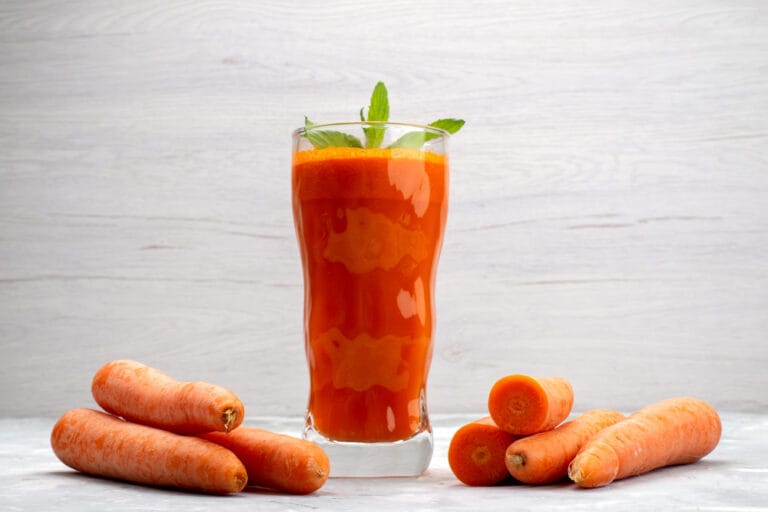FREE SHIPPING OVER $50
How to Eat More Protein Without Wrecking Your Gut or Missing Other Nutrients
Protein is essential for building muscle, supporting metabolism, and keeping you full—but increasing your intake can come with unintended side effects if you’re not careful. Many people bump up their protein without realizing they’re cutting back on fiber, missing out on essential micronutrients, or even irritating their gut in the process. So how do you get more protein in your diet while keeping your digestion happy and your nutrition balanced?
That’s exactly what we’re diving into. Whether you’re training hard, trying to lose weight, or just want to feel more energized, here’s how to up your protein without paying the price elsewhere in your diet.

1. Understand Your Protein Needs First
Before adding scoops of protein powder to everything, it helps to know how much protein your body actually needs. Most active adults benefit from somewhere between 1.2 to 2.0 grams of protein per kilogram of body weight daily, depending on activity level, age, and goals. For someone weighing 150 lbs (about 68 kg), that’s roughly 82 to 136 grams of protein per day.
Going way beyond this won’t necessarily lead to more muscle or better health. In fact, extremely high protein diets—especially when they lack balance—can strain digestion, increase the risk of constipation, and crowd out other important nutrients like fiber, healthy fats, and antioxidants.
2. Don’t Ditch Fiber in the Process
Fiber and protein need to coexist. When people start eating more protein, they often replace carbs like whole grains, fruits, or veggies—which are major sources of fiber. This can lead to gut issues like constipation, bloating, or sluggish digestion.
Instead of cutting out carbs completely, try integrating high-fiber, protein-rich foods that keep your digestive system running smoothly:
- Lentils and beans
- Quinoa
- Chia seeds
- Edamame
- Vegetables like broccoli, spinach, and Brussels sprouts
Aim for at least 25 to 30 grams of fiber per day for optimal digestion.
3. Prioritize Whole Food Protein Sources
Whole food protein sources don’t just offer protein—they’re packed with vitamins, minerals, and other nutrients your body needs. Instead of relying solely on protein powders or bars, go for:
- Eggs (also rich in choline and healthy fats)
- Greek yogurt (with probiotics for gut health)
- Chicken breast or turkey (lean and iron-rich)
- Salmon or sardines (protein + omega-3s)
- Tofu and tempeh (plant-based and full of calcium)
These foods give you more nutritional bang for your buck and are easier on the digestive system than ultra-processed protein products.
4. Use Protein Powders Strategically
There’s nothing wrong with a good protein powder—but it shouldn’t be your only source of protein. Use them to fill gaps, not to replace meals entirely. Look for options that are:
- Low in added sugars
- Free from artificial sweeteners (which can irritate your gut)
- Contain digestive enzymes or probiotics (bonus for digestion)
Whey protein isolate, pea protein, and hemp protein are generally easier to digest than other types, especially if you have lactose intolerance or food sensitivities.
5. Rotate Your Protein Sources
Eating chicken breast every day might seem efficient, but it’s not ideal for your gut—or your overall nutrition. Repetitive eating can limit your nutrient variety and increase the risk of food sensitivities over time.
Instead, rotate between animal and plant-based proteins to keep your gut microbiome diverse and your meals more balanced. Try to include:
- Legumes one day
- Eggs or dairy the next
- Fish once or twice a week
- Lean red meat in moderation
Variety helps ensure you’re getting a mix of amino acids, vitamins, and minerals your body thrives on.
6. Balance Protein With Healthy Fats and Carbs
Protein needs support. If your meals are packed with protein but missing healthy fats or complex carbs, your energy levels and digestion can take a hit.
Build balanced meals that include:
- Healthy fats (avocado, olive oil, nuts)
- Complex carbs (sweet potatoes, oats, whole grains)
- Plenty of fiber (leafy greens, seeds, cruciferous veggies)
This combination helps slow digestion, stabilize blood sugar, and give you long-lasting energy.
7. Stay Hydrated—Especially With Higher Protein Intake
Protein metabolism creates nitrogen byproducts that your kidneys have to flush out, so if you’re eating more protein, you also need to up your water intake. Not drinking enough can lead to constipation or even kidney strain over time.
Aim for at least 8 to 10 cups of water daily, and more if you’re working out or increasing your protein significantly.
8. Support Your Gut With Probiotics and Fermented Foods
If higher protein intake is making your stomach feel off—think gas, bloating, or irregularity—it could be time to support your gut microbiome. A healthy gut helps you digest and absorb nutrients efficiently.
Incorporate gut-friendly foods like:
- Kefir
- Sauerkraut
- Kimchi
- Greek yogurt
- Miso
These fermented foods contain probiotics that help maintain healthy gut flora, which in turn supports better digestion of all macronutrients, including protein.
9. Listen to Your Body and Track Changes
More isn’t always better. If you notice any symptoms like sluggish digestion, unusual fatigue, constipation, or bloating after increasing protein, your body may be telling you something. Try adjusting:
- The types of protein you eat
- Your meal timing
- The balance of carbs and fiber
Tracking what you eat and how you feel can reveal patterns and help you adjust before real issues arise.
10. Don’t Obsess—Focus on Long-Term Balance
Trying to hit a perfect protein number every single day can lead to unnecessary stress. Instead, aim for consistency and variety over time. Eating more protein can absolutely support your health and fitness goals—but only when it’s part of a well-rounded, nutrient-dense diet.
Think of your meals as a nutrient puzzle, not just a protein goal. When protein fits into a bigger picture that includes fiber, healthy fats, hydration, and gut-friendly habits, you’ll feel stronger, more energized, and better balanced overall.
Conclusion
Eating more protein doesn’t have to come at the cost of your gut health or overall nutrition. By focusing on whole foods, keeping fiber in the picture, and balancing your plate, you can enjoy all the muscle-building, hunger-busting benefits of protein without any digestive regrets.
It’s not about extremes—it’s about smart, sustainable nutrition that works with your body, not against it.
Related Articles
- Want Better Gut Health and More Protein? A Doctor Reveals the Surprisingly Simple Way to Get Both
- Protein vs. Strength Training: What Really Builds Muscle After 50, According to Science
- Stop Wasting Your Cash: A Pharmacist Says These 5 Supplements Do Nothing for Your Health
- Can Chomps Beef Sticks Really Boost Fat Loss and Muscle Growth?
- Lifting Heavy, Seeing No Gains? This Is How Much Protein You Really Need







